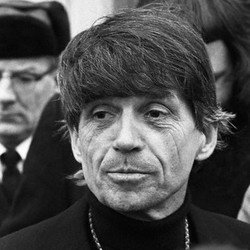1.
I have seen the victims.
And this sight of the mutilated dead has exerted such inward change upon me
That the words of corrupt diplomacy appear to me more and more in their true light.
That is to say—as words spoken in enmity against reality.
2.
Instructions upon return.
Develop for the students the meaning of Ho’s “useless years.”
The necessity of escaping once and for all the slavery of “being useful.”
On the other hand; prison, contemplation, life in solitude.
Do the things that even “movement people” tend to despise and misunderstand.
To be radical is habitually to do things which society at large despises.
3.
An adequate peace movement could not satisfy itself
With assuaging the sufferings of the victims
By medical help at the point of impact.
The radical work consisted rather in staying with conditions at home
Trying as best we might to work changes upon a society
In which military victims were the logical outcome
Of a ruinous, power-ridden national ethos in the world at large.
–In 1968 Jesuit priest Daniel Berrigan and historian Howard Zinn traveled to North Vietnam to accompany back to the U.S. three U.S. pilots who had been captured by the Vietnamese. Berrigan gives an account of their journey in his Night Flight to Hanoi, which contains the above passages.
